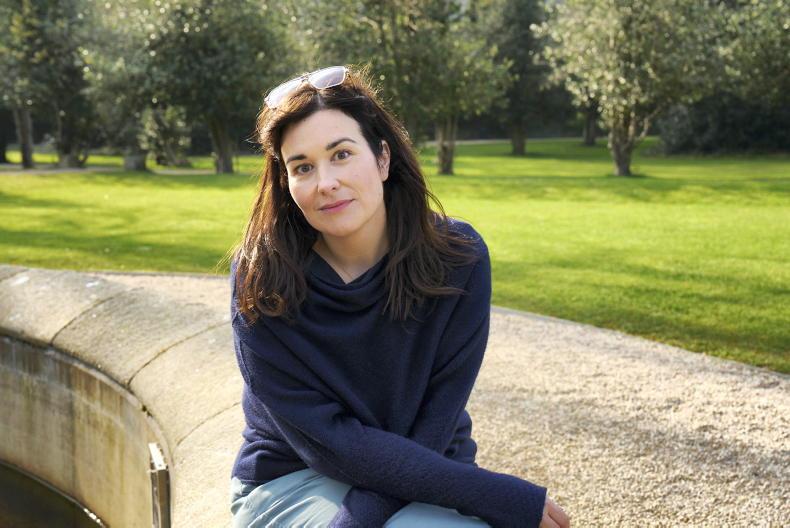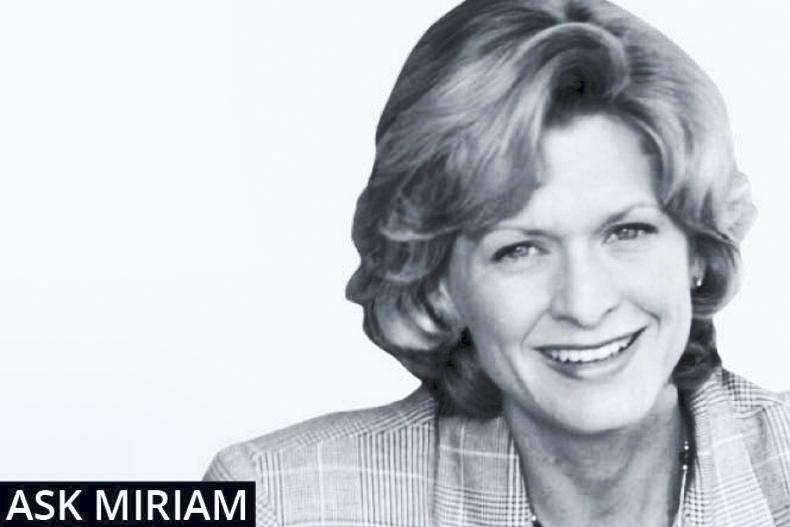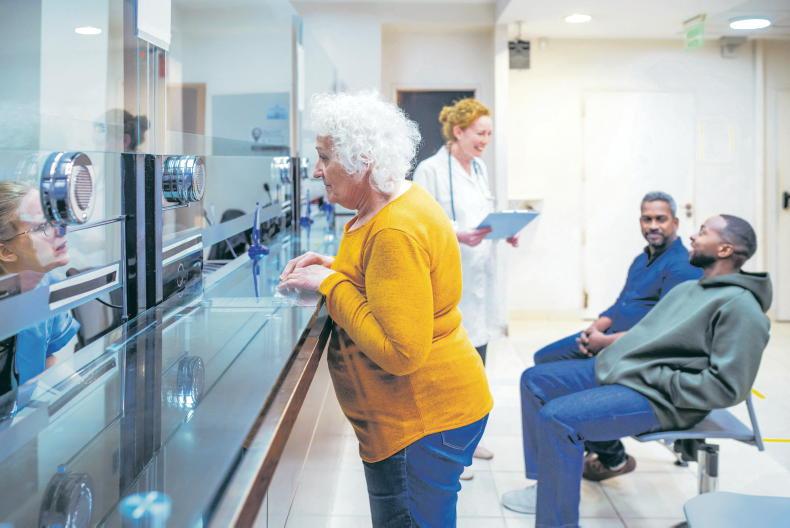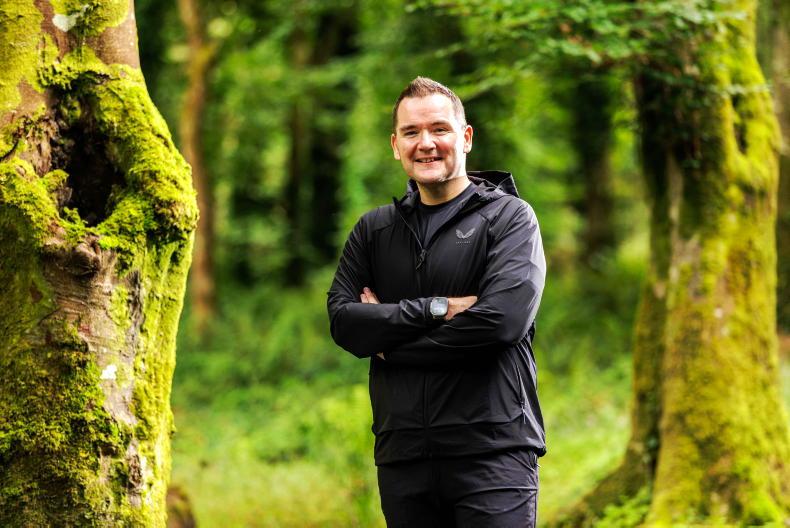What’s the ‘free HRT’ update?
Health Minister Jennifer Carroll MacNeill says she has met with the Irish Pharmacy Union (IPU) in a bid to resolve the delay in rolling out a national plan to make Hormone Replacement Therapy (HRT) free to all women.
As part of Budget 2025, outgoing health minister Stephen Donnelly announced that €20 million was being made available from January for the provision of state-funded HRT products.
The move was regarded as a game-changer for women, offering relief from symptoms of menopause like hot flushes, mood swings and joint pain. The delay in rolling out the measure nationwide, means women are continuing to pay.
The medicine-based treatment, which is used to relieve symptoms of menopause and perimenopause, is free for holders of medical cards, but otherwise can cost in the region of €30 to €70 a month.
The Department of Health confirmed that women who have a prescription from their doctor would still have to pay for their GP visit and the dispensing fee to their pharmacist.
Speaking in Dún Laoghaire on 5 March, Jennifer Carroll MacNeill said there was a perception it would be “free entirely” and that the Government would cover the dispensing fee, but this is not the case.
She says women are paying around €60 for HRT, of which €40 is the cost of the medication and around €20 is the fee that pharmacists charge for dispensing, but it varies among different pharmacies.
The minister said she met with the Irish Pharmacy Union on 11 February and had “a good discussion” with them about the rollout of the scheme. The current stance, as at 4 March, is that free HRT will be rolled out “as soon as possible”.
“We are actively engaging with the minister and her officials on a new proposal that prioritises women’s needs while ensuring a practical solution for both the State and pharmacy,” an IPU spokesperson told Irish Country Living.
HSE app gives easy access to information
It has finally happened. The HSE has launched the first version of a health app to provide easy access for patients to their health information. For security reasons, you will need a verified MyGovID to log in to the app on your phone. This is to prove your identity and ensure that the HSE is giving personal health information to the right person.
Maternity patients can access their hospital appointments list via the app now. It will be a while yet before the app allows everyone to check/cancel HSE appointments or see where they are on waiting lists for treatment, but it’s a start.
The app will allow you to carry a digital list of self-declared medications – handy if you are on several and want a list on your phone rather than on a piece of paper.
You will also be able to see a list of medicines that you receive through the Drugs Payment Scheme or Medical Card Scheme. You will be able to store your HSE cards on it too including your European Health Insurance Card (EHIC), Medical Card, Long-term Illness Card (LTI), Drugs Payment Scheme card (DPS) and GP Visit Card, if you have any of those. You will also have access to your flu and COVID-19 vaccination records.
In addition, there is a function which will enable you to find information about HSE services easily.
See mygovid.ie
Oesophageal cancer research
Over 500 people are diagnosed with oesophageal cancer each year in Ireland.The Oesophageal Cancer Fund – the national charity for this type of cancer – is reminding people of the
symptoms to watch out for. These include difficulty swallowing food, ongoing heartburn or acid reflux, a persistent cough or unexplained weight loss.
If you didn’t get a chance to buy a lollipop for €3 to support The Oesophageal Cancer Fund street fundraiser in early March you can still donate on ocf.ie
See lollipopl.ie or ocf.ie
Boost your mood
Woodland sounds like birds singing or trees rustling in the breeze can stimulate wellbeing responses. So can seeing spring flowers emerging. That’s according to the Woodland Trust in Northern Ireland who carried out an extensive study – the BIO-Well study – which showed that 90% of the 10,000 people questioned said their mood and general wellbeing were boosted by walking and viewing wildlife in native woodland.
See woodlandtrust.org.uk/northernireland and treecouncil.ie/woodland-walks
New depression treatment available
St John of God Hospital in Dublin is the first hospital in Ireland to introduce Repetitive Transcranial Magnetic Stimulation (rTMS) therapy for the treatment of depression. This is a non-invasive treatment for patients who don’t have success with conventional treatments, the hospital says.
It uses magnetic pulses to stimulate specific brain regions, promoting its ability to form new connections and regulate mood. Doctors at the hospital state that clinical studies have shown that around 50% of patients experience significant symptom relief with rTMS treatment, with about a third achieving remission from their depression symptoms. The treatment can be provided on an outpatient basis, without anaesthesia.
The typical treatment course consists of daily sessions over four to six weeks, with each course lasting around 20-40 minutes. Around 21 million people in Europe, or 4.5% of the population, experience depression, with higher rates in women (8.8%) than men (5.3%). In Ireland, 12%of young people (15-24 years) report chronic depression, the highest rate in Europe.
Many people in Ireland with chronic conditions have to cut back on basic living expenses to cover health costs, a Royal College of Surgeons in Ireland (RCSI) study has found.Ireland’s first ever public Assisted Human Reproduction Treatment Centre is to commence service in late 2025 and be fully operational in 2026.There are now two new HSE eating disorders teams in Ireland – a child and adolescent mental health services team in the HSE Midwest (Limerick city, county and Co Clare); and an adult team in HSE Dublin and Midlands (covering counties with no previous eating disorders service).
What’s the ‘free HRT’ update?
Health Minister Jennifer Carroll MacNeill says she has met with the Irish Pharmacy Union (IPU) in a bid to resolve the delay in rolling out a national plan to make Hormone Replacement Therapy (HRT) free to all women.
As part of Budget 2025, outgoing health minister Stephen Donnelly announced that €20 million was being made available from January for the provision of state-funded HRT products.
The move was regarded as a game-changer for women, offering relief from symptoms of menopause like hot flushes, mood swings and joint pain. The delay in rolling out the measure nationwide, means women are continuing to pay.
The medicine-based treatment, which is used to relieve symptoms of menopause and perimenopause, is free for holders of medical cards, but otherwise can cost in the region of €30 to €70 a month.
The Department of Health confirmed that women who have a prescription from their doctor would still have to pay for their GP visit and the dispensing fee to their pharmacist.
Speaking in Dún Laoghaire on 5 March, Jennifer Carroll MacNeill said there was a perception it would be “free entirely” and that the Government would cover the dispensing fee, but this is not the case.
She says women are paying around €60 for HRT, of which €40 is the cost of the medication and around €20 is the fee that pharmacists charge for dispensing, but it varies among different pharmacies.
The minister said she met with the Irish Pharmacy Union on 11 February and had “a good discussion” with them about the rollout of the scheme. The current stance, as at 4 March, is that free HRT will be rolled out “as soon as possible”.
“We are actively engaging with the minister and her officials on a new proposal that prioritises women’s needs while ensuring a practical solution for both the State and pharmacy,” an IPU spokesperson told Irish Country Living.
HSE app gives easy access to information
It has finally happened. The HSE has launched the first version of a health app to provide easy access for patients to their health information. For security reasons, you will need a verified MyGovID to log in to the app on your phone. This is to prove your identity and ensure that the HSE is giving personal health information to the right person.
Maternity patients can access their hospital appointments list via the app now. It will be a while yet before the app allows everyone to check/cancel HSE appointments or see where they are on waiting lists for treatment, but it’s a start.
The app will allow you to carry a digital list of self-declared medications – handy if you are on several and want a list on your phone rather than on a piece of paper.
You will also be able to see a list of medicines that you receive through the Drugs Payment Scheme or Medical Card Scheme. You will be able to store your HSE cards on it too including your European Health Insurance Card (EHIC), Medical Card, Long-term Illness Card (LTI), Drugs Payment Scheme card (DPS) and GP Visit Card, if you have any of those. You will also have access to your flu and COVID-19 vaccination records.
In addition, there is a function which will enable you to find information about HSE services easily.
See mygovid.ie
Oesophageal cancer research
Over 500 people are diagnosed with oesophageal cancer each year in Ireland.The Oesophageal Cancer Fund – the national charity for this type of cancer – is reminding people of the
symptoms to watch out for. These include difficulty swallowing food, ongoing heartburn or acid reflux, a persistent cough or unexplained weight loss.
If you didn’t get a chance to buy a lollipop for €3 to support The Oesophageal Cancer Fund street fundraiser in early March you can still donate on ocf.ie
See lollipopl.ie or ocf.ie
Boost your mood
Woodland sounds like birds singing or trees rustling in the breeze can stimulate wellbeing responses. So can seeing spring flowers emerging. That’s according to the Woodland Trust in Northern Ireland who carried out an extensive study – the BIO-Well study – which showed that 90% of the 10,000 people questioned said their mood and general wellbeing were boosted by walking and viewing wildlife in native woodland.
See woodlandtrust.org.uk/northernireland and treecouncil.ie/woodland-walks
New depression treatment available
St John of God Hospital in Dublin is the first hospital in Ireland to introduce Repetitive Transcranial Magnetic Stimulation (rTMS) therapy for the treatment of depression. This is a non-invasive treatment for patients who don’t have success with conventional treatments, the hospital says.
It uses magnetic pulses to stimulate specific brain regions, promoting its ability to form new connections and regulate mood. Doctors at the hospital state that clinical studies have shown that around 50% of patients experience significant symptom relief with rTMS treatment, with about a third achieving remission from their depression symptoms. The treatment can be provided on an outpatient basis, without anaesthesia.
The typical treatment course consists of daily sessions over four to six weeks, with each course lasting around 20-40 minutes. Around 21 million people in Europe, or 4.5% of the population, experience depression, with higher rates in women (8.8%) than men (5.3%). In Ireland, 12%of young people (15-24 years) report chronic depression, the highest rate in Europe.
Many people in Ireland with chronic conditions have to cut back on basic living expenses to cover health costs, a Royal College of Surgeons in Ireland (RCSI) study has found.Ireland’s first ever public Assisted Human Reproduction Treatment Centre is to commence service in late 2025 and be fully operational in 2026.There are now two new HSE eating disorders teams in Ireland – a child and adolescent mental health services team in the HSE Midwest (Limerick city, county and Co Clare); and an adult team in HSE Dublin and Midlands (covering counties with no previous eating disorders service). 







SHARING OPTIONS